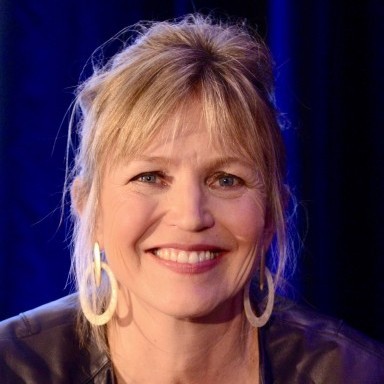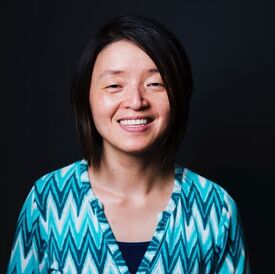Using Data To Create Economic Opportunities For All Members Of Global Workforce

Highlights
Ya Xu manages LinkedIn’s global team of data scientists that manage data science projects across the company’s products, sales, marketing, economics, infrastructure, and operations. She says the company takes active responsibility over the data they collect to ensure fairness and protect privacy. They are very proactive about how they maintain their members’ trust, either with how they share the data externally or leverage the data to create opportunities.
LinkedIn’s fairness mission is that two people with equal talent should have an equal shot at opportunities. To reinforce this, they constantly test new products to determine if a new feature introduces any unintended consequences that might impact fairness. For example, LinkedIn’s referral button allows a job applicant to see if someone they know works in the company and ask for a referral. The unintended consequence is this feature will benefit individuals who have a big network vs. the general population. She says they typically have about 500-600 experiments running concurrently to test new products.
One feature that encourages fairness is the push notification that anyone can sign up for that alerts you for when a new job becomes available. That notification is not dependent on your network, and they’ve noticed that this feature especially benefits people who don’t have a strong social capital. They share examples like this to help product managers build more socially responsible features.
The company has also found that when networks become more diverse, it increases mobility in the labor market. For example, LinkedIn’s Plus One Pledge that encourages people to accept an invitation from somebody who they traditionally would not have connected with has been very successful in opening opportunities for those with less social capital.
On the topic of women in the workplace, she encourages women to advocate for themselves. “When I first joined Microsoft, I was the first statistician on the team. People didn’t know what to do with me so I just defined what a statistician should be doing,” she says. “It’s up to you to define what kind of role you play in an organization. The more reactive you are, the more that people are going to give you orders. The more proactive you become, the better it is for the company.”
Ya has been an individual contributor for most of her career focused on solving a specific problem, but once she became a manager, her perspective shifted. “What excites me now is actually being able to help my team to be more successful. It’s almost like there’s no way I could solve the problem better than the way that my team can solve the problem. It really excites me when I see their achievement.”
She believes that women lead differently. “I have seen women leaders in extremely prominent positions be so humble,” she says. “I think women can be a lot more vulnerable, and it’s actually a strength. When we are vulnerable in front of our team, then they relate to us. There’s something different about women, and in a very good way.”

About the Host
Margot Gerritsen
Stanford Professor [Emerita] Margot Gerritsen is the Executive Director and co-founder of Women in Data Science Worldwide (WiDS) and born and raised in the Netherlands. Margot received her MSc in Applied Mathematics from Delft University of Technology before moving to the US in search of sunnier and hillier places. In. 1996 she completed her PhD in Scientific Computing & Computational Mathematics at Stanford University and moved further West to New Zealand where she spent 5 years at the University of Auckland as a lecturer in Engineering Science. In 2001, she returned to Stanford as faculty member in Energy Resources Engineering. Margot was the Director of the Institute for Computational & Mathematical Engineering (ICME) at Stanford from 2010-2018 and the Senior Associate Dean for Educational Affairs in Stanford’s School of Earth Sciences from 2015-2020. In 2022, Margot took Emerita status to devote herself to WiDS full time. Margot is a Fellow of the Society of Industrial & Applied Mathematics, and received honorary doctorates from Uppsala University, Sweden, and the Eindhoven University of Technology in the Netherlands. She now lives in Oregon with her husband Paul.
Connect with Margot Gerritsen on Twitter (@margootjeg) and LinkedIn.
Find out more about Margot on her Stanford Profile.


